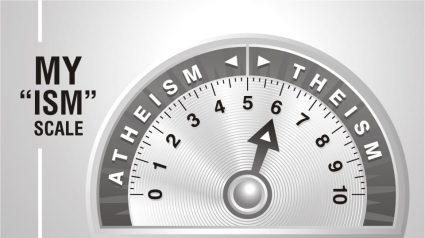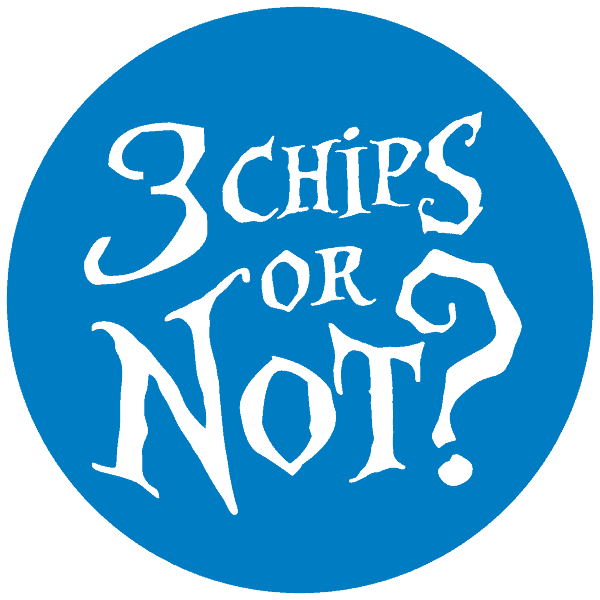Oftentimes when I am talking to my scary atheist friends and debating the veracity of certain stories or books, they will shoot them down because they claim that the information or arguments used in them are based off anecdotes instead of authentic research or measurable laboratory results.
So I thought I’d take a look at the anecdote and think about whether its narration could ever be considered valid. An anecdote is defined as a short story about a real person, thing, or event.
I will begin by conceding that the protest against the anecdote is fair to some extent – there is no great way to confirm whether the experience described by the person relating the anecdote is true.
For example, I have a friend who claims to have been haunted by a poltergeist in one of his past homes. He described to me several incidents of having doors close and drawers slam and lights turn off. He related everything calmly, and in great detail, and except for this one unusual experience he did not seem to have any other superstitions or ultra-religious beliefs.
I will confess that his stories spooked me a bit – I don’t think I roamed around in my house thereafter without some garlic and cat’s blood. Or something like that. But in general, I had no way of knowing whether these episodes actually happened or not. Perhaps my friend was making them up completely. Perhaps he truly believed events like that occurred, but he was hallucinating or seeing something else and misinterpreting it. Or perhaps he was too young and his memory of what happened is distorted. There could be numerous reasons why his stories may not be true.


I can’t properly judge this particular scenario because I haven’t known my friend long enough to discern the truth behind his credibility or any biases. But here is what I tell my atheist acquaintances in terms of how I view anecdotes of spiritual or religious experiences, and how I believe others view them as well:
A THEIST is someone who is prone to easily believing anecdotes, because one of the biggest recountings they trust is that told by their holy book – for example, the Bible. After all, holy books are stories of historical incidents and people, which may or may not have been real. So I would categorize ardent theists as individuals who tend to believe most, if not all religious anecdotes.
A hard-core ATHEIST is someone who may not believe ANY spiritual anecdotes, no matter who is saying them or what they are about. The atheist view is that if something cannot be proven by science or evidence, it is not tenable. It probably wouldn’t matter if God himself came down and spoke to us, atheists would most likely claim that the government put drugs in everyone’s water and we were all hallucinating together.
And then there are us AGNOSTICS. We usually like to be in the middle, like a godly Goldilocks. Although I shouldn’t presume to speak on behalf of all agnostics, so I’ll speak for myself. As someone with both theist and atheist viewpoints, I neither fully believe nor disbelieve an anecdote at the outset. Instead, I might give more weight to certain anecdotes over others. It all depends on who is telling the story and what the story entails.
An anecdote on a ghost sighting by my ya-ya theist friend – let’s call her Phoebe – who goes to church every week and also believes in tarot cards, the ouija board, or other superstitions? On a scale of 1 to 10, with 10 being the most convincing, I’d probably rate her ghost encounter a 1. At a rating of 1, the anecdote would be one of many spiritual data points I collect and analyze, but it wouldn’t significantly change my thinking.
A supernatural anecdote by a more rational theist friend who may not be as gullible as the blind faith devotee, but still has a huge bias towards anything religious? Her stories might warrant a 3.
The tale told by Oprah who claims to have seen a ghost in a hotel once? (You can listen to her talk about it HERE.) Oprah is someone who appears greatly inclined towards theism on the one hand, but on the other seems rather astute and no-nonsense. I’d rate her ghost story a 6. Having someone like Queen Oprah attest to a ghost viewing would, and did, budge the needle on my “ISM” scale a bit, away from atheISM and more towards theISM, though it couldn’t convert me fully.

A hypothetical future confession of having experienced the divine by someone like Sam Harris – an avowed and passionate atheist who won’t even concede the existence of free will – and who now recants his atheism and says he believes in God because of some recent experience? If that shocking event were to actually happen one day, I’d give that a resounding 9! I’d take a point off because he may be someone who could fake a story to increase his popularity and book sales. But mostly I’d be forced to believe someone like him because of the unlikely turnaround, and it would weigh heavily on my ISM scale.
It would be rare for me to be at a 0 or 10. I would not fully dismiss a story, unless it was particularly silly, or fully believe it either, unless it was really significant.
So to summarize – one gullible side believes almost anything if it fits into their confirmation bias, and all religious anecdotes are a 10. They judge like Paula Abdul – it’s all good. The other group will arrogantly concede to nothing, and for them, every story rates a 0. They are Simon Cowell. And then there is the reasonable middle – we’re Randy – where shades of grey matter. Some stories work, and some are just too pitchy, dawg!
The potential power of the anecdote is important because oftentimes a litany of them are used in books to make a point. It’s very common in books on spirituality, such as Many Lives, Many Masters or The Scalpel and the Soul or Proof of Heaven: A Neurosurgeon’s Near Death Experience. All of these were authored by doctors who described encounters with the supernatural within their practices or in their own lives. The stories have never been proven but the perceived legitimacy of the people telling them – medical professionals – could lend them weight, at least in some people’s view.
The cousin to the anecdote – the case study – is also used in popular books to make a point. The case study is a bit different in that it’s not a personal story that may or may not have happened. Instead, it’s an analysis of some existing incident or company or product that can be vetted. But though the case study SUBJECT itself is verifiable, the CONCLUSIONS drawn from it may not be.
For example, famous author Malcom Gladwell uses alot of case studies in his best selling books The Tipping Point, The Outlier, and What The Dog Saw. Highly respected and considered a brilliant social scientist, he has nevertheless been accused by critics of using carefully selected case studies to back his assertions, rather than proper, statistically significant research. The common objection to his work is that there will always be a few stories that can be plucked and planted to support any argument of any kind, in lieu of proof via a larger number of data points.
OTHER POSTS YOU MIGHT LIKE
Case studies are more reliable than anecdotes, of course, but they still fall into a grey area when used to support an assertion. It’s interesting to note that some people will stubbornly shut out any kind of grey evidence when it comes to spirituality, angrily calling it “woo-woo nonsense” or “imbecilic superstition” but be open to grey in other areas.
To each their own, everyone has a right to their own opinion of course. I remain friends with people on all ends of the ISM scale, though it can be a little frustrating when trying to have a discussion with someone on one extreme or the other.
On my end, I remain open to anecdotes. If Bill Maher were to do an about-face tomorrow and tell us that he had a life-changing supernatural experience – one where he knows he was not hallucinating, and which has turned him from being an avid atheist to a passionate theist – you better believe that would make me sit up and take notice! In fact, I’d run to the nearest ashram and give up the rest of my life to God, so spooked and convinced would I be with the shocking turn around. For now, however, no anecdote or creepy ghost story has ever been powerful enough to knock me completely off my agnostic and hedonistic perch. If one does, come find me . . . I’ll be hiding out at the nunnery.
- Likes: 2
- Shares: 0
- Comments: 4
Funny what the brain can do, it even makes up crap when it don’t have all the information, know fact that has been stupid and papers written
The problem with anecdotes is that people too often take one tiny example and create a broad ideal from it.....like someone saying "I don't know anyone who died from Covid-19...it can't be all that serious." This ignores the data of more than 600,000 deaths in the US alone, based on one person's experience. It's like saying "But it snowed in Alabama last winter so there is no such thing as climate change." 🙄
Anything that shakes your carefully arranged ego house of concepts and idea cards is rather bothersome, because they disrupt your little house of cards. You’re frightened. How anyone reacts to an inexplicable ego crushing event depends on many factors. Seeing a ghost will create a crack which could either grow over or keep on cracking. Our fear is of the unknown. We like to think that what we know is correct. If not a rather uncomfortable collapsing feeling, a free fall feeling come on that average people will be frightened of. God is self evident. What is this now? Why is there life? It is and how! Most are so full and distracted and frightened to see the obvious. God is unknowable with words and concepts because it is everything. A man who had never seen the colour blue spent all his life studying it. He became a world renowned expert to all the rest who had never seen blue. You see blue. Blue cannot be defined with words to a blind man. So is the unknowable truth. People get glimpses and inflate their egos with the memory. Some pursue the truth all their live. BTW Maher is a 33 degree mason. He practices the dark path. He is a pathological liar.

